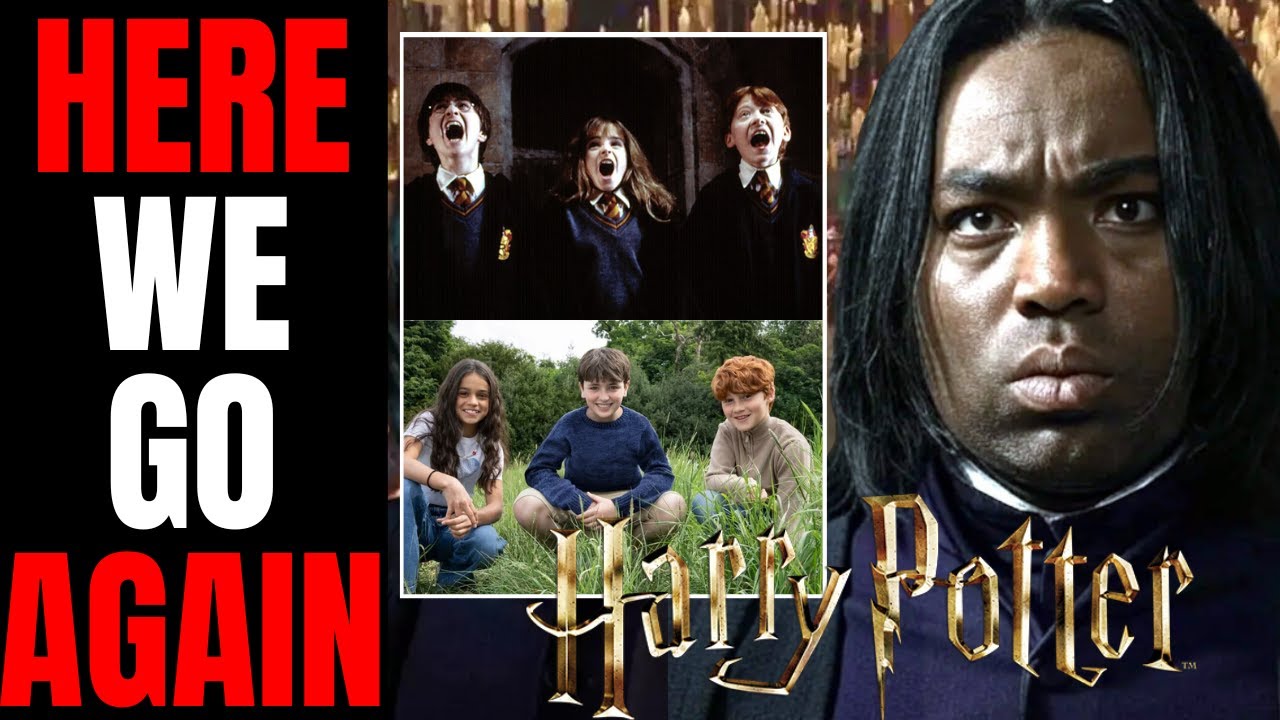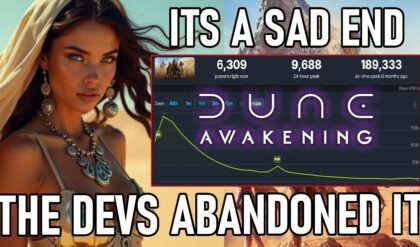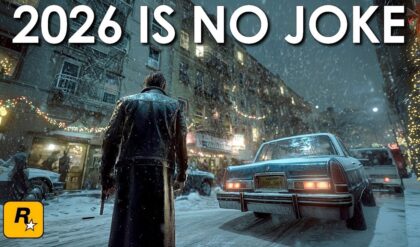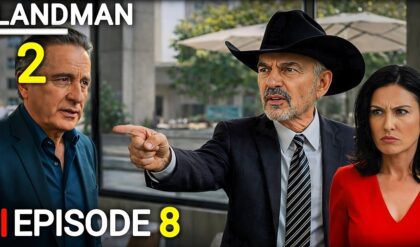HBO’s Harry Potter Series: New Cast and the Snape Controversy
HBO’s upcoming Harry Potter series, a highly anticipated reboot of J.K. Rowling’s beloved wizarding saga, has taken a bold step forward by announcing its core cast: Dominic McLaughlin as Harry Potter, Arabella Stanton as Hermione Granger, and Alastair Stout as Ron Weasley. Yet, the excitement has been overshadowed by a firestorm of controversy surrounding the casting of Paapa Essiedu, a Black British actor, as Severus Snape, with some fans crying, “He’s not our Severus!” Social media platforms are ablaze with debates, pitting those who champion diversity against others who argue that Snape’s iconic book description—pale skin, greasy black hair, and a hooked nose—should have been preserved. As HBO aims to reimagine Hogwarts for a new generation, this casting clash reveals the challenges of adapting a cultural juggernaut, the weight of fan expectations, and the evolving landscape of representation in media.

A New Trio Takes the Stage
Announced on May 27, 2025, HBO’s casting choices for the Golden Trio signal a fresh start for the Harry Potter universe. Dominic McLaughlin, a screen newcomer, steps into the role of Harry Potter, the Boy Who Lived, with his casting praised for capturing the character’s youthful vulnerability. Arabella Stanton’s Hermione Granger has sparked intrigue, with fans noting her alignment with the book’s description of bushy hair and prominent front teeth, a detail often softened in Emma Watson’s film portrayal. Alastair Stout, cast as Ron Weasley, brings a lanky charm that echoes Rupert Grint’s iconic performance, though some have remarked that his “super glow-up” makes him less the scruffy sidekick of the novels.
The series, set to span seven seasons with one book per season, aims to delve deeper into Rowling’s source material, offering a more faithful adaptation than the Warner Bros. films (2001-2011), which grossed $7.7 billion worldwide. With Francesca Gardiner as showrunner and Mark Mylod directing, HBO promises a meticulous retelling, expanding on subplots and characters glossed over in the movies, such as Peeves the poltergeist and the full arc of the Marauders. The supporting cast, including Janet McTeer as Minerva McGonagall, John Lithgow as Albus Dumbledore, and Nick Frost as Rubeus Hagrid, has been met with enthusiasm, with fans eager to see these veterans bring Hogwarts’ elders to life.
The Snape Casting Firestorm
The casting of Paapa Essiedu as Severus Snape, however, has become a lightning rod for controversy. Essiedu, a 34-year-old Royal Academy of Dramatic Art graduate, is celebrated for roles in I May Destroy You and The Lazarus Project, earning accolades for his nuanced performances. His selection as Snape, a pivotal character known for his complex arc from bitter potions master to tragic hero, was initially leaked in April 2025, sparking early debates. The official announcement confirmed the choice, but it also unleashed a wave of criticism from fans who argue that Essiedu’s casting deviates from Rowling’s description of Snape as a pale, sallow-skinned man with a gaunt frame and distinctive features.
Social media platforms like X have been flooded with reactions, with some fans labeling the decision a “race swap” that disregards the books’ fidelity. They point to Rowling’s detailed portrayal—Snape’s greasy hair, hooked nose, and ghostly pallor—as integral to his characterization as a brooding, neglected figure from a grim industrial town. Others have drawn comparisons to Alan Rickman’s unforgettable performance in the films, arguing that Essiedu, despite his talent, cannot replicate the “aesthetic” of a character so deeply etched in fans’ minds. The sentiment is not universal; many defend Essiedu, praising his acting prowess and arguing that race is irrelevant to Snape’s essence—his loyalty, pain, and redemption.
The Debate Over Representation
The backlash against Essiedu’s casting reflects broader tensions in adapting beloved properties for modern audiences. The Harry Potter series, written between 1997 and 2007, has faced scrutiny for its limited diversity, with most main characters described as white and few non-white roles, like Cho Chang and Kingsley Shacklebolt, often criticized for stereotypical portrayals. HBO’s reboot, backed by Rowling as an executive producer, appears to be addressing this by diversifying the cast, with Essiedu’s Snape and other rumored non-white actors signaling a more inclusive Hogwarts.
Supporters of the casting argue that Essiedu’s talent outweighs physical discrepancies, noting that theater and film adaptations often prioritize emotional authenticity over literal adherence. Snape’s story—his unrequited love for Lily Potter, his double-agent role, and his ultimate sacrifice—relies on acting skill, not skin tone. Essiedu’s experience with morally complex characters makes him a compelling choice, and some fans have celebrated the opportunity to see a Black actor embody such an iconic role. The series’ setting, a magical world unbound by historical racial constraints, further supports this flexibility, with magic as the great equalizer.
Critics, however, argue that fidelity to the source material is paramount, especially for a character as central as Snape. They contend that physical traits like pallor are not merely cosmetic but tied to his backstory of poverty and isolation. Some have expressed frustration with what they see as “woke” casting decisions, accusing HBO of prioritizing diversity over storytelling. This perspective has sparked accusations of racism, with defenders of Essiedu pointing out that opposition often ignores his qualifications, focusing solely on his race. The debate has grown heated, with memes, hashtags, and viral threads amplifying both sides.
The Weight of Fan Expectations
The Harry Potter franchise, with over 500 million books sold and a global fanbase, carries immense cultural weight. The original films, while beloved, faced criticism for omissions like the S.P.E.W. subplot and Dumbledore’s backstory, fueling demand for a more comprehensive adaptation. HBO’s series, expected to premiere in 2026 or 2027, aims to meet this demand, but the Snape controversy underscores the challenge of satisfying a fandom with deeply personal connections to the story. For many, Snape is not just a character but a symbol of redemption, shaped by Rickman’s silky voice and haunted gaze, making any reinterpretation a high-stakes gamble.
The casting debate also highlights the evolution of fandom culture. In the 2000s, fan reactions were confined to forums and fanfiction; today, platforms like X amplify voices instantly, turning casting announcements into global flashpoints. The backlash against Essiedu mirrors similar controversies, like the casting of Halle Bailey as Ariel in Disney’s The Little Mermaid, where diversity clashed with fan nostalgia. While some fans embrace change, others cling to the books’ imagery, viewing alterations as a betrayal of their childhood.
HBO’s Bold Vision
HBO’s decision to cast Essiedu suggests confidence in its vision, backed by Rowling’s approval despite her own controversies over diversity and inclusion. The network, known for prestige dramas like Game of Thrones and Succession, is betting on a mix of newcomers and veterans to rekindle the magic. The trio—McLaughlin, Stanton, and Stout—brings fresh energy, while heavyweights like McTeer and Lithgow lend gravitas. Essiedu’s Snape, whether divisive or inspired, aligns with HBO’s goal of reimagining the series for a diverse, modern audience, potentially expanding its reach beyond the books’ original demographic.
The production’s early stages, with filming set to begin in Leavesden, UK, have generated buzz, but the Snape backlash poses a risk. If Essiedu’s performance fails to win over skeptics, it could fuel narratives of a “flop” before the series even airs. Conversely, a standout portrayal could silence critics, much like Heath Ledger’s Joker overcame initial doubts. HBO’s challenge is to balance fidelity with innovation, ensuring that Snape’s essence—his bitterness, brilliance, and heartbreak—shines through, regardless of who plays him.
The Road Ahead
As the Harry Potter series moves forward, the Snape controversy will likely remain a flashpoint, testing HBO’s ability to navigate fan passion and cultural shifts. Essiedu, a proven talent, has the skills to redefine Snape, but he’ll need a stellar script and direction to transcend the noise. The Golden Trio’s casting, meanwhile, offers hope, with McLaughlin’s Harry, Stanton’s Hermione, and Stout’s Ron poised to anchor the story. Fans, divided yet devoted, will watch closely, ready to cheer or jeer when the series debuts.
The saga of HBO’s Harry Potter is a microcosm of storytelling in the 2020s: a battle between tradition and progress, nostalgia and reinvention. Whether Essiedu’s Snape is a “disaster” or a triumph remains to be seen, but the debate itself proves the enduring power of Rowling’s world. As wands are raised and allegiances tested, one thing is clear: Hogwarts is back, and it’s anything but peaceful. Dive into the casting drama, weigh the magic and the mayhem, and see why this reboot has everyone buzzing.





